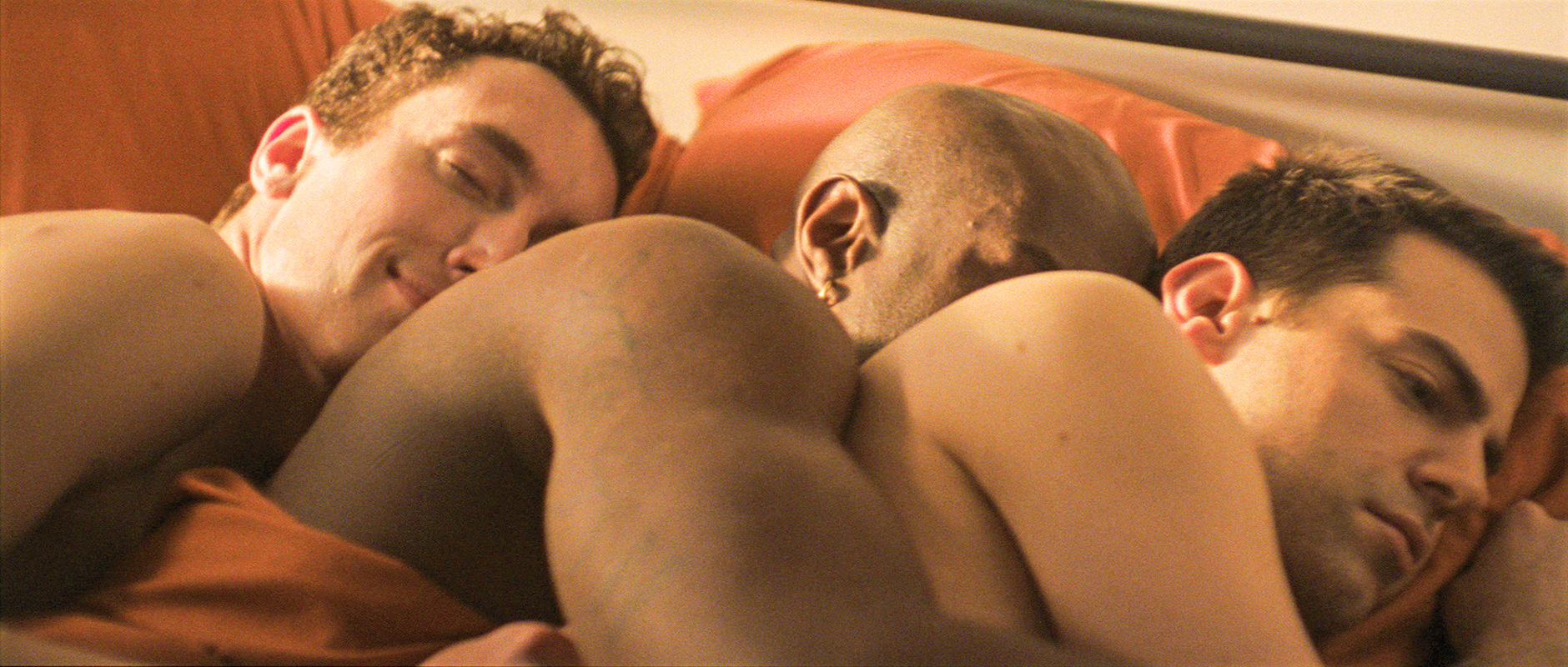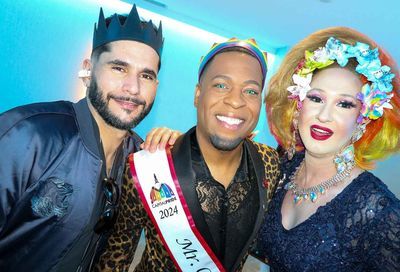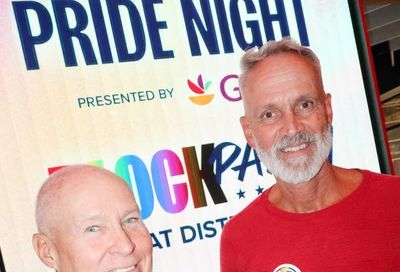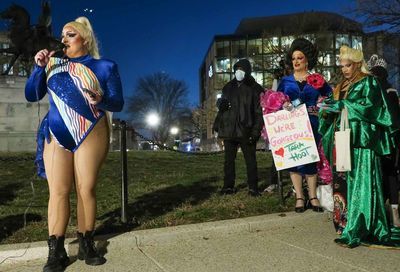Reel Affirmations Review: Pat Rocco Dared
'Pat Rocco Dared' largely succeeds as both an introduction and elegy for an incredible participant in and witness to history.

“Things fade and people forget,” Pat Rocco says near the beginning of Pat Rocco Dared (★★★☆☆). It’s a sobering reflection from someone with a resume like his.
As a pioneering erotic filmmaker, a political activist, co-founder of LA Pride, he had a front-row seat to LGBTQ history in his lifetime, putting him in the unique position of having filmed both Harvey Milk’s notorious “come out” speech and the first same-sex kiss ever seen in a big-screen theatrical release.
Despite the notoriety in his heyday, both his films and activism are a curiously unknown quantity in discussions of the gay rights movement — to say nothing of the way he has been overlooked in the mainstream. Taking it upon himself to correct that historic oversight, filmmaker Charlie David looks into the life of Pat Rocco.
Pat Rocco Dared is built around interviews with Rocco himself, intercut with historical footage of the ’60s and ’70s and, naturally, short yet mesmerizing scenes from Rocco’s own body of work.
David, for his part, is charmed by his subject. Throughout the film he speaks in awed tones of Rocco’s pioneering influence on gay cinema.
He can’t help but geek out as a filmmaker, never more so when they are in the same room together. At one point, David shares a laugh with Rocco over their differing interpretations of Rocco’s Leonardo da Jason, a film that David calls sexy but that Rocco admits he always thought of as “silly.”
Rocco himself is matter-of-fact about the significance of his work, comfortably declaring that people who saw his films were “seeing something they never had seen before: male relationship films and nudity. Nudity that was not pornographic, nudity that was loving and affectionate, and once in a while, erotic. But never erotic enough that it could be called ‘X.'” For film historian Whitney Strub, this is not so much prudishness as a reflection of Rocco’s desire to show intimacy and human warmth in his erotic scenes.
Much of the film is dedicated to the originality and influence of his work as a filmmaker, but plenty of screen time is also given to his life as an activist and documentarian, two aspects of his life that were often inseparable.
In interview segments, activist and scholar Syrus Marcus Ware praises Rocco’s diverse casting and groundbreaking depictions of trans people on film, which he notes would have been impressive even if they had been made today.
The film closes out on a somewhat somber note with the aftermath of Pat Rocco’s passing in 2018, reflecting not only on his enduring influence but also on his warmth as a person.
David set himself a daunting task in setting out to do justice to Rocco’s outsized influence on the history of both queer and erotic film, but Pat Rocco Dared largely succeeds as both an introduction and elegy for an incredible participant in and witness to history.
Pat Rocco Dared screens at Landmark’s E Street Cinema on Saturday, Oct. 22, at 4 p.m. Tickets are $15 at the door. It is also available in the virtual festival through Sunday, Oct. 23, at 11:59 p.m. Click here for purchasing options.
Support Metro Weekly’s Journalism
These are challenging times for news organizations. And yet it’s crucial we stay active and provide vital resources and information to both our local readers and the world. So won’t you please take a moment and consider supporting Metro Weekly with a membership? For as little as $5 a month, you can help ensure Metro Weekly magazine and MetroWeekly.com remain free, viable resources as we provide the best, most diverse, culturally-resonant LGBTQ coverage in both the D.C. region and around the world. Memberships come with exclusive perks and discounts, your own personal digital delivery of each week’s magazine (and an archive), access to our Member's Lounge when it launches this fall, and exclusive members-only items like Metro Weekly Membership Mugs and Tote Bags! Check out all our membership levels here and please join us today!






















You must be logged in to post a comment.